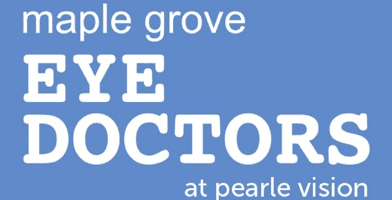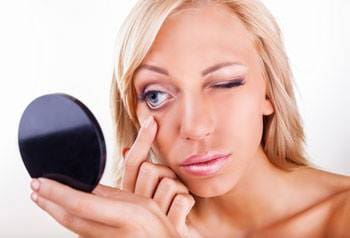6 Common Misconceptions about Eye Health
Has anyone ever told you that prescription lenses can make your eyes weaker? Or that reading in dim light can affect your vision? Well, these are two common eye health misconceptions prevalent today. The truth is that multiple factors like genetics and underlying medical conditions can affect a person’s vision, and eye diseases can develop without any overt symptoms. Only a trained eye care professional can catch eye problems early on and help you adopt healthy habits that support your sight. To help you distinguish right from wrong, here are some common eye health misconceptions.
1. You Don’t Need Regular Eye Exams If You Have Good Vision
A common misconception is that people don’t feel that they need to get eye exams because they ‘see fine’. (We hear this all the time!). REALLY?
Imagine, if your teeth feel fine, does that mean you have no cavities? There are a couple of problems with that thought process. If your prescription changes a little bit, you may still see okay, but you definitely won’t be seeing as well as you could be. Many people don’t realize that eye exams monitor the health of the eye. For children who have a vision screening at the pediatrician’s office, it’s important to remember that a vision screening does not examine the health of their eyes – it merely tests distance vision.
Serious eye conditions can come on pretty randomly without much notice, even if you don’t realize the problems are there. Early detection with comprehensive eye exams is the key to most eye conditions. It’s like dental exams; you go every so often for cleaning. You don’t only go in when you feel like a cavity is growing. It’s for preventative measures, not when it’s too late.
If people wait too long to go in for an exam, it can have adverse effects. If someone doesn’t have any issues with their eyes, why would they think something is wrong? It starts with an eye exam. They may say everything looks good, but they should still come back regularly. For people who don’t have an exam history, they don’t have a baseline of eye health, up to that point.
2. Your Eyes Can Get Weaker If You Wear Prescription Lenses
Another common misconception about eye health is wearing glasses makes your eyes weaker! NO. IT. DOES. NOT. That is the farthest from the truth.
Glasses allow you to see clearer, but the reason it seems like that is that when we turn 35 or 40, our eyes’ ability to focus on an object up close becomes more challenging and inconsistent because of muscle fatigue and the hardening of a focusing lens in the eye. Call it the natural aging of your eyes’ lenses.
So, whether you are wearing glasses or not, that allows the muscles to relax so you have less eye strain and headaches. But, since the muscles are relaxing when the glasses are on, everything seems blurry when the glasses come off.
Common sense would lead you down the path that it makes your eyes weaker, but in reality, it just makes it more comfortable to see.
3. Eating Carrots Can Improve Your Vision
Another common vision misconception the general public hears is how carrots can help one’s eyesight. You might always hear that you should eat a ton of carrots to get your eyes healthier.
We get a lot of patients asking about this because of their desire to help their vision. Carrots, in particular, won’t reverse any vision damage. While it is a misconception, carrots certainly contain a lot of vitamins and minerals that contribute to a good vision.
WE WOULD SAY, EAT LEAFY GREEN VEGGIES.
One of the most important pieces of nutritional advice we can offer is to eat dark, leafy green vegetables like kale, collard greens, and spinach to lower your risk of long-term eye diseases. These are rich in vitamins A, C, and E and minimize the likelihood of developing eye problems. Yes, carrots do have a lot of nutrients that are healthy for you in general, but a well-balanced, nutrient-rich diet is the key.
4. Self-Diagnosing Eye Diseases
Many misconceptions are spread through word of mouth. A lot of things stem from the fact a patient hears something in their appointment that applies to them specifically and shares that as fact for everyone. However, what is true for one person isn’t true for the next. Also, this can happen when Googling something. Self-diagnosis via Google is never a good idea. Always check with an optometrist to review your particular symptoms and develop a treatment plan.
5. There’s No Way to Avoid Vision Loss with Age
You might have heard that vision loss with age is inevitable. You will have to wear glasses as you get older. While it is common for many people to develop vision problems as they age, avoiding these problems is possible. Take precautions like exercising regularly, having a balanced diet, using sunglasses to protect your eyes outdoors, and watching for any vision changes while you are still young. Eye-friendly diet and lifestyle habits can take you a long way.
6. Digital Screens Damage Your Eyes
Research shows that prolonged use of digital devices like television, mobile phones, tablets, etc., can contribute to myopia in kids. It won’t necessarily severely damage the eyes, but indeed weaken them. An excessive amount of close work is the culprit, not the digital screens. Close work can contribute to digital eye strain, headaches, and dry eyes, thus causing myopia and other vision problems. Like every other aspect of your life, balance is essential. Take breaks every 20 minutes when in front of a screen and teach kids eye-healthy behaviors. If you notice a problem, go for an eye exam immediately.
The Bottom Line
These misconceptions occur because the eyes are the most commonly talked about organ of the body. We can easily assess our vision and assume that since we can see, our eyes are fine. This misconception is also scary because you only get two of them. It is easy to assume everything is ok to us because we can see relatively clearly.
To combat conflicting information or misconceptions, a visit to one of our expert eye doctors is a good place to start.
When our expert optometric team is at work, they will examine your eye health thoroughly using the latest technology and equipment. Your responsibility is to make eye exams a part of your annual routine, making it easier to know about your eye health and appease any doubts.






